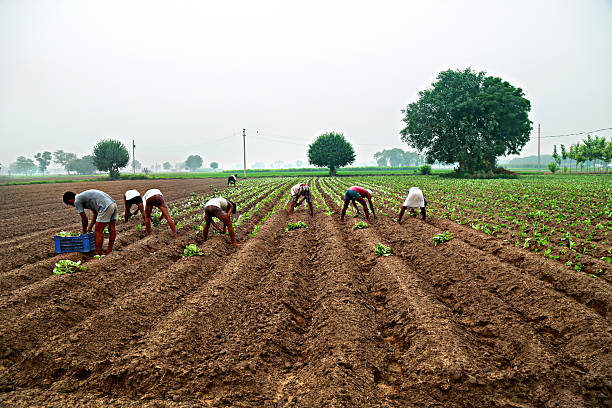Sowing The Future: How Agricultural Entrepreneurship Can Transform African Communities
Introduction
Agriculture has always been the backbone of African economies, providing sustenance and livelihood to millions across the continent. Yet, for all its importance, the potential of this sector remains vastly untapped. In the wake of modern challenges and the rising global demand for food, a new era of agricultural entrepreneurship – or "Agri-business" – has begun to gain traction. This movement is not just about increasing yields; it's about transforming communities through innovative business models, sustainable practices, and economic empowerment. In this blog post, we will delve into how agri-business is catalyzing change in African communities and why it represents a future of abundance and prosperity.
Agricultural technology, or agri-tech, is revolutionizing how farmers plant, grow, and harvest their crops. In Africa, innovation in agri-tech is not just a trend; it's a necessary evolution to address the challenges of climate change, soil degradation, and food security. Entrepreneurs are leveraging technology to create precision farming tools, which allow for the efficient use of resources like water and fertilizers, leading to increased productivity and sustainability.
Drones are being used to map and monitor vast tracts of farmland, providing valuable data that helps farmers make informed decisions about crop management. Mobile platforms offer access to real-time market information, enabling producers to optimize pricing and distribution. The introduction of these technologies through entrepreneurial ventures is not merely enhancing the agricultural value chain; it's reshaping it, making it smarter, more responsive, and more inclusive.
Cultivating Empowerment: Women in Agri-business
Women play a critical role in African agriculture, often representing the majority of the workforce on smallholder farms. However, they frequently face barriers that limit their access to resources, financing, and markets. Agri-business entrepreneurship has the potential to break down these barriers, empowering women to take charge of their economic destiny.
Several initiatives are already making a difference. By forming cooperatives, women are pooling resources and gaining collective bargaining power. Women-led agri-businesses are gaining recognition and support, with programs dedicated to providing them with the training and capital needed to grow. The impact is profound: when women thrive in agri-business, they invest back into their families and communities, improving health, education, and overall well-being.
Fertilizing Growth: Agri-business and Economic Development
The ripple effects of a vibrant agri-business sector are felt throughout the economy. Agriculture entrepreneurship drives growth in ancillary industries such as logistics, processing, and manufacturing. It also stimulates the local economy by creating jobs and increasing the demand for local goods and services.
Agri-business ventures are unlocking new markets, both domestically and internationally. African entrepreneurs are not just meeting local food demands; they are exporting commodities, adding value through processing, and branding their products for global consumption. This expansion is vital for the continent's economic development, as it diversifies income sources, increases foreign exchange earnings, and reduces the reliance on imports.
Nurturing Sustainability: The Environmental Impact of Agri-business
The future of agriculture in Africa is inextricably linked to the health of its environment. Agri-business entrepreneurs are at the forefront of sustainable farming practices that conserve resources, protect biodiversity, and mitigate the impacts of climate change.
From organic farming to integrated pest management, African agri-businesses are implementing practices that enhance the land's natural productivity without depleting it. Innovations such as solar-powered irrigation systems and biopesticides are reducing the environmental footprint of farming operations. By embracing sustainability, these businesses are ensuring that they can continue to prosper for generations to come.
Conclusion
Agri-business is more than an economic opportunity; it's a transformative force for African communities. Through the adoption of agri-tech, the empowerment of women, the stimulation of economic development, and the commitment to sustainability, agricultural entrepreneurship is sowing the seeds of a brighter future for the continent.
The potential is enormous, but the challenges are real. Collaboration between governments, entrepreneurs, investors, and communities will be crucial to overcome these obstacles and unlock the full promise of African agri-business. As we look to the horizon, we invite you to join the conversation. What are your thoughts on the power of agri-business to transform African communities? Have you witnessed or participated in initiatives that are making a difference? Share your stories, insights, and ideas in the comments below. Together, we can nurture the growth of this vital sector and reap a harvest of prosperity for all.












0 comments:
Post a Comment